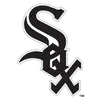
 White Sox
White Sox Tigers
Tigers White Sox
White Sox Tigers
Tigers
 White Sox
White Sox Tigers
Tigers
 White Sox
White Sox Tigers
Tigers
 White Sox
White Sox Tigers
Tigers
 White Sox
White Sox Tigers
Tigers
 White Sox
White Sox Tigers
Tigers
 White Sox
White Sox Tigers
TigersFull Schedule
4/6
5:00 pm
CHSN
4/6
5:30 pm
CHSN+
4/6
10:00 pm
CHSN ESPN+
4/8
8:00 pm
CHSN+
4/8
10:30 pm
CHSN+
4/8
11:00 pm
CHSN
4/9
10:00 pm
CHSN
4/10
12:00 am
4/10
5:00 pm
CHSN
4/10
11:00 pm
ESPN+
4/11
11:30 pm
CHSN
4/12
12:00 am
4/12
8:00 pm
CHSN
4/12
11:00 pm
ESPN+
4/13
5:00 pm
4/13
6:00 pm
CHSN
4/14
11:00 pm
ESPN+,Amazon Pr..
4/15
11:00 pm
CHSN ESPN+
4/15
11:30 pm
CHSN
4/16
11:30 pm
CHSN
4/17
6:00 pm
CHSN
4/18
11:00 pm
CHSN
4/19
8:00 pm
CHSN
4/20
5:30 pm
CHSN
4/21
3:00 pm
CHSN
4/22
11:30 pm
CHSN
4/23
11:30 pm
CHSN
4/24
5:00 pm
CHSN
4/26
2:00 am
CHSN
4/26
8:00 pm
CHSN
4/27
8:00 pm
CHSN
4/29
11:30 pm
CHSN
4/30
11:30 pm
CHSN
5/1
6:00 pm
CHSN
5/2
11:30 pm
CHSN
5/3
6:00 pm
CHSN
5/4
6:00 pm
CHSN
5/5
11:30 pm
CHSN
5/6
11:30 pm
CHSN
5/7
11:30 pm
CHSN
5/8
6:00 pm
CHSN
5/9
11:30 pm
CHSN
5/10
11:00 pm
CHSN
5/11
6:00 pm
CHSN
5/13
10:30 pm
CHSN
5/14
11:00 pm
CHSN
5/15
4:30 pm
CHSN









